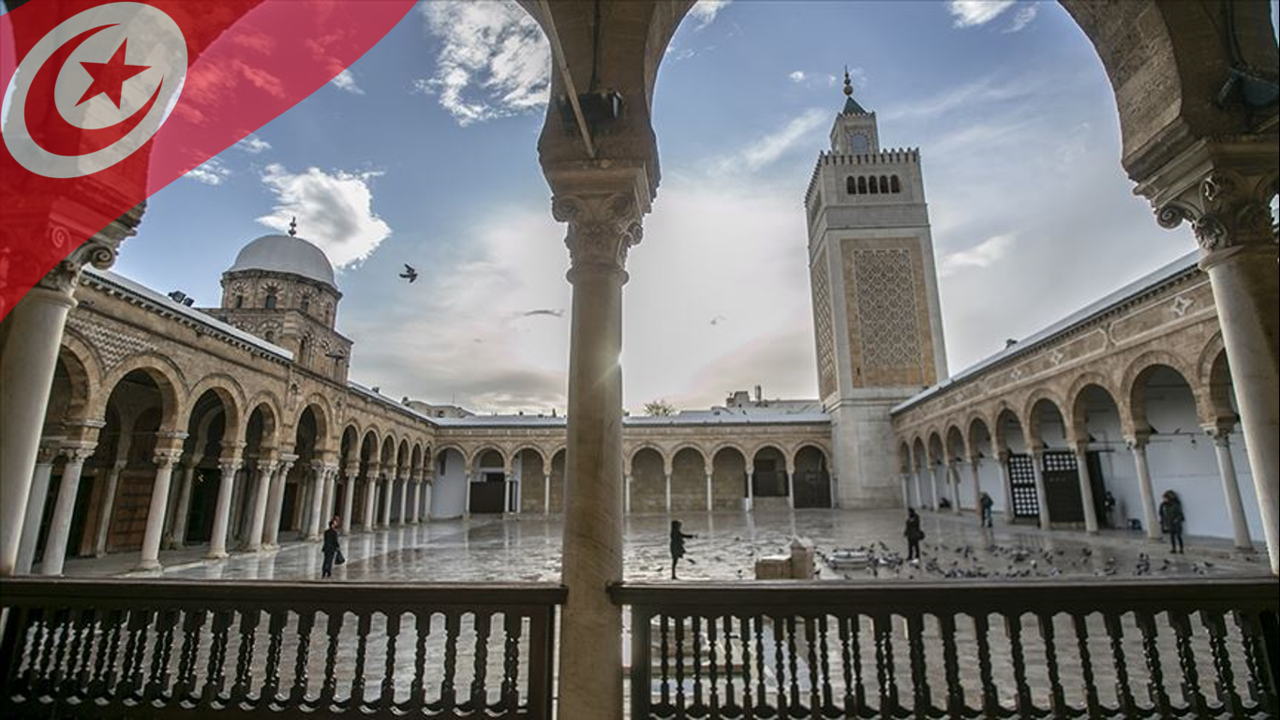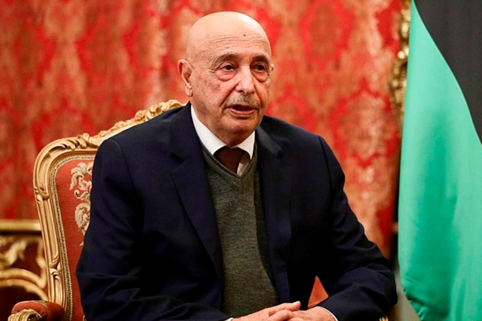Source: Agencies 22 January 09:20
President of the Libyan Council of Representatives ‘Aqīla Ṣāliḥ announces that “the chance to found a new government is still present” and expresses that “the governmental work from Tripoli means that it will be under the mercy of the armed groups and that is rejected”.
President of the Libyan Council of Representatives ‘Aqīla Ṣāliḥ confirms that “the chance to find a new government is still present”, pointing out that there is a proposition ahead of the U.N. mission at Libya about “the mechanism to form a new government”.
‘Aqīla said that “the elections must take place under a unified government” pointing out that it “is not an aim, but a tool to send the message of stability in the country”. Thus according to what was cited from the official Facebook page of the Council’s spokesperson.
Ṣāliḥ believed that “the governmental work from Tripoli means that it will be under the mercy of the armed forces, which is rejected”, pointing out at the same time that “the President of the Presidential Council stated that the legal government is that one that the Council of Representatives support”.
He stressed the need to hold a popular referendum on the draft constitution, confirming that “the people alone are those who ratify the country’s constitution”.
He accused the Presidential Council that it “has become part of the government, which’s term has ended”. Thus confirming that “it did not fulfill its duty, did not hold elections and serve the national interest that is the objective of its work”.
The Supreme State Council in Libya 11 January has announced the preliminary agreement to hold a discussion session for the council at the beginning of the following week to study the constitutional document.
Previously President of the Libyan Council of Representatives ‘Aqīla Ṣāliḥ had previously announced that “an agreement has been reached with President of the Supreme State Council Hālid al-Mašrī about the new roadmap to solve the crisis of the political impasse from which Libya is suffering”.
It should be pointed out that the Supreme State Council in Libya last month voted to “suspend the communication with the Parliament until the law of restoring the Constitutional Court in the city of Benghazi has not been canceled”, pointing out that “this itself is causing a crisis in the situation and deepens the fragmentation in the county with an impact on the independence of the judiciary”.
Libya is witnessing an increasing political crisis as a complete struggle between the two governments. One is led by former Interior Minister Fatḥī Bāšāġā that was endorsed last March by the Parliament residing in Tobruk, the most eastern part of the county.
The other one is the Government of National Unity which was founded on the political agreements held under U.N. auspices more than a year ago and is led by ‘Abd al-Ḥamīd ad-Dabība who refused to hand over power, only through elections.
Pic: President of the Libyan Council of Representatives ‘Aqīla Ṣāliḥ
صالح: المجلس الرئاسي الليبي لم يقم بمهامه وعمل الحكومة من طرابلس مرفوض
المصدر: وكالات 22 كانون الثاني 22:19
رئيس مجلس النواب الليبي عقيلة صالح يعلن أنّ “فرصة إيجاد حكومة جديدة لا تزال قائمة”، ويعتبر أنّ “عمل الحكومة من طرابلس يعني أنّها ستكون تحت رحمة المجموعات المسلحة، وأنّ هذا أمر مرفوض
أكّد رئيس مجلس النواب الليبي عقيلة صالح، أنّ “فرصة إيجاد حكومة جديدة لا تزال قائمة”، مشيراً إلى أنّ هُناك مقترحاً أمام بعثة الأمم المتحدة لدى ليبيا حول “آليات تشكيل الحكومة الجديدة”.
وقال عقيلة إنّ “الانتخابات لا بدّ أن تكون في ظلّ حكومة واحدة”، لافتاً إلى أنّها “ليست غاية، إنّما هي وسيلة لإرساء الاستقرار في البلاد”، حسب ما نقلت عنه صفحة الناطق باسم مجلس النواب على “فيسبوك”.
واعتبر صالح أنّ “عمل الحكومة من طرابلس يعني أنّها ستكون تحت رحمة المجموعات المسلحة، وأنّ هذا أمر مرفوض”، مشيراً في الوقت نفسه إلى أنّه “أبلغ رئيس المجلس الرئاسي أنّ الحكومة الشرعية هي التي يعتمدها مجلس النواب”.
وشدد على ضرورة أن يستفتي الشعب الليبي على مشروع الدستور، مؤكداً أنّ “الشعب هو الوحيد الذي يعتمد دستور البلاد”.
واتّهم المجلس الرئاسي بأنّه “أصبح تابعاً للحكومة منتهية الولاية”، مؤكّداً أنّه “لم يقم بمهامه ولم يجر الانتخابات والمصالحة الوطنية التي هي من صميم عمله”.
وكان المجلس الأعلى للدولة في ليبيا أعلن في الـ11 من الشهر الجاري، الاتفاق المبدئي على عقد جلسة تشاورية للمجلس مطلع الأسبوع المقبل، لدراسة الوثيقة الدستورية.
وسبق ذلك أن أعلن رئيس مجلس النواب الليبي عقيلة صالح، أنّه “تم التوافق مع رئيس المجلس الأعلى للدولة خالد المشري على خارطة طريق جديدة من أجل حل أزمة الانسداد السياسي الذي تعانيه ليبيا”.
يشار إلى أنّ المجلس الأعلى للدولة في ليبيا صوّت، الشهر الماضي، على “تعليق التواصل مع البرلمان إلى حين إلغاء قانون إحداث المحكمة الدستورية في مدينة بنغازي”، مبيناً أنّ “ذلك من شأنه تأزيم الأوضاع، وتعميق حال الانقسام في البلاد والتأثير في استقلالية القضاء”.
وتشهد ليبيا أزمة سياسية مُتصاعدة في نزاع بين حكومتين، واحدة برئاسة وزير الداخلية السابق فتحي باشاغا، التي منحها البرلمان المنعقد في طبرق، أقصى شرق البلاد، ثقته، في آذار/مارس الماضي.
والثانية حكومة الوحدة الوطنية المنبثقة عن اتفاقات سياسية رعتها الأمم المتحدة، قبل أكثر من عام، ويترأسها عبد الحميد الدبيبة، الذي يرفض تسليم السلطة، إلا عبر انتخابات.


